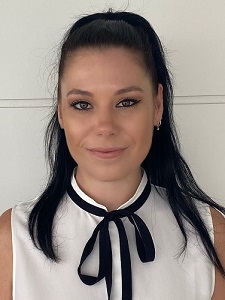You have probably stumbled across this article because you have been wondering “Is my child gifted?”.
Wide ranges of characteristics are exhibited in children who are gifted and talented. Giftedness does not only occur in academic subjects where children may perform well above their grade level in specific areas, such as mathematics or reading. Some may excel in the arts, playing instruments or utilizing various modes of media to demonstrate their talents.
Gifted children are often defined as being born with above-average natural abilities; talented children are identified as having developed these natural abilities to a high level. A child can go from gifted to talented by having their innate abilities developed and nurtured.
Gifted children are born with natural capabilities usually in the top 10% of their same aged peers. Giftedness tends to run in families and is seen cross culturally and in all types of families.
How is it identified?
There is no one way to identify giftedness, however, IQ tests are the most common tools used to screen for it. Parents, families and friends often identify giftedness informally in toddlers or pre-schoolers through observations of the child’s behaviour and any superior development.
Standardised testing of ability and achievement is commonly used to identify high academic abilities in children and adolescents formally.
IQ tests can provide a wide range of information about a child’s intellectual profile and can assist teachers in developing appropriate educational support in response to their learning needs. IQ tests measure domains of verbal comprehension, visual spatial skills, fluid reasoning, working memory and processing speed. The average number of these five domains is used to calculate a full-scale IQ score. Generally, education departments accept full-scale IQ scores of 130 to meet requirements for gifted programs.
Signs your Child might be Gifted and Talented
One sign your child might be gifted is advanced development. This is often noticed by comparing your child to other children the same age. For example, your child may be able to read at 3 years of age.
You might also notice your child prefers to converse with adults or other children a few years older.
Your child may also learn differently. Gifted children may be able to focus and concentrate well on tasks, learn new information or skills quickly, display curiosity and ask questions, have an excellent memory or be very creative.
The Challenges of Gifted and Talented Children
The challenges of gifted and talented children can depend on his or her personality, innate abilities and the support they have access to.
Those gifted and talented children with unusual or wide-ranging interests may find they do not have a whole lot in common with other children their age. This can lead to boredom at preschool or in the classroom. They may display frustration toward other same-aged peers, or give up trying when school lessons are teaching content or skills they already excel in.
As they grow into their teen years and primary attachments shift from parents to peers, they might hide their interests to fit in with their friends.
You might observe that your child has very strong interests, opinions and emotions relative to their same-aged peers and at times, can have difficulty managing these strong emotions. Gifted and talented children may become easily upset if they are not always ‘getting things right’ rather than worrying about friendship troubles.
They may not understand why their peers don’t share the same passion and excitement as they do about specific interests. You can provide your child with the opportunity to develop social skills through interest-based groups for older children and teenagers (ie band, drama, mathletics) or enrolling them in programs for gifted and talented children.
Not unlike other children, gifted and talented children can behave in challenging ways. However, these behaviours can occur for different reasons. For example, they may be quick to question rules and routines, get frustrated or lack learning opportunities.
To manage these behaviours, be firm regarding your general expectations, but be ready to negotiate the little things. For example, being firm about turning the light out by 9pm but sometimes letting your child use cognitive apps instead of reading.
I am trained in administering standardized IQ testing using the Weschler Intelligence Scale for Children – Fifth Edition. If you suspect your child is gifted, please contact me for further information regarding formal testing.
 Author: Tara Pisano, BA (Psych) (Hons), M Psych.
Author: Tara Pisano, BA (Psych) (Hons), M Psych.
Tara Pisano is a Brisbane psychologist with a special interest in early intervention in adolescents and young adults, as this is when three quarters of mental health conditions emerge. In her practice, she draws on a range of evidence-based therapies such as CBT, DBT, IPT, ACT and Motivational Interviewing, to promote recovery and positive outcomes.
Tara is not currently taking bookings, however, we have a number of clinicians available for bookings. To make an appointment for counselling please visit our webpage here to learn about our highly qualified clinicians, or call M1 Psychology Loganholme on (07) 3067 9129..
References:
- Clark, B. (2012). Growing up gifted: Developing the potential of children at school and at home (8th edn). Old Tappan, NJ: Pearson Education.
- De Lisle, J.R. (2017). Parenting gifted kids: Tips for raising happy and successful children. Cheltenham, Victoria: Hawker Brownlow Publishing.
- Gagne, F. (2005). From gifts to talents: The DMGT as a developmental model. In R. Sternberg & J.E. Davidson (Eds), Conceptions of giftedness (2nd edn, pp. 98-119). Cambridge: Cambridge University Press.
- “Gifted and Talented Children .” International Encyclopedia of Marriage and Family. Retrieved June 16, 2021 from Encyclopedia.com: https://www.encyclopedia.com/reference/encyclopedias-almanacs-transcripts-and-maps/gifted-and-talented-children
- Porter, L. (2005). Gifted young children: A guide for teachers and parents (2nd edn). Sydney, NSW: Allen & Unwin.
- Silverman, L.K. (1993). Counseling the gifted and talented. Denver, CO: Love Publishing Company